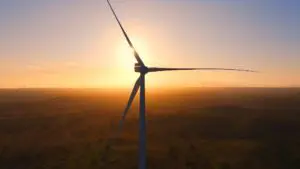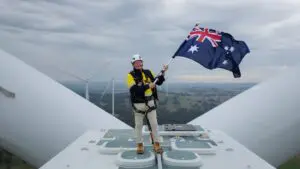Hopes of a resolution soon to the impasse that is halting investment in large scale renewable energy in Australia have again been dashed, this time by international events.
Federal Cabinet was supposed to have considered the renewable energy target issue this week, but discussions focused instead on Australia’s response to the execution of the Bali 9 duo – Andrew Chan and Myuran Sukamaran.
There is a possibility that the RET decision could be discussed at next week’s meeting, but that is likely to be dominated by issues surrounding the federal budget, which is due to be handed down the following week.
The Abbott government has refused to move from its position of cutting the target from 41,000GWh to 32,000GWh – even though Labor has offered a compromise proposal of 33,500GWh.
Industry Minister Ian Macfarlane has said that even a 32,000GWh target might not be approved by Cabinet, given the hostility among Cabinet ministers to the renewable energy industry.
Environment Minister Greg Hunt is thought to be amenable to moving to 33,500GWh, as are a group of backbenchers. But it is not clear that view has the numbers, or whether the Abbott government will continue to ride the flak over the lack of investment in the industry.
This week, the small 19.8MW Coonooer Bridge wind farm got financing for $50 million from Japan’s biggest wind operater, Eurus, and the ANZ Bank. It is the first large-scale wind project to get financing in more than a year, but only because it will receive a fixed tariff from the ACT government under its plan to move to 90 per cent renewable energy by 2020.
Only one project – a small floating solar pilot project in South Australia formally opened this week – got financing in the six months from September through March, according to Bloomberg New Energy Finance, as investment in large-scale renewables all but dried up. The only other projects to get finance were sponsored by the Clean Energy Finance Corporation and the Australian Renewable Energy Agency, both institutions that the Abbott government has sought to dismantle.
The Abbott government will, however, be holding talks this week with environment groups, academics and business about the post 2020 targets that they will be taking to Paris, and hopefully finalising well before then.
Hunt continues to defend the results of the Emissions Reduction Fund’s first auction last week, insisting it put Australia well on the path to achieving its 2020 targets – and its post 2020 targets, whatever they might be.
Australia has been urged by the Climate Change Authority to cut emissions by 30 per cent by 2025, and by business groups to consider a means other than Direct Action to meet such targets. The Australian Industry Group warned that it might cost $25 billion if auctions were used to cut emissions, an assessment that is accepted by most in business and markets.
But the below exchange, on Sky News yesterday, was fascinating, with Hunt being asked by conservative commentator Miranda Devine why any money at all should be spent on emissions abatement by a government led by a climate sceptic (Tony Abbott).
MIRANDA DEVINE:
Minister Hunt, Miranda Devine. Congratulations on neutralising climate change as a political issue, you’ve done that very well but can I ask you for all the hundreds of millions of dollars of taxpayer money that you are going to be lavishing on Direct Action, how many degrees of difference is that going to make to the temperature of the…
GREG HUNT:
Ah, the Andrew Bolt question.
MIRANDA DEVINE:
…globe? Well, no it’s not, it’s the climate sceptic question, really Mr Hunt and look, you’ve done a great job. You’ve made sure that Tony Abbott, who is a climate sceptic, has managed to skate through this issue which was such an enormous issue at the last election. However, I still ask you what good is this hundreds of millions of dollars going to do for the climate?
GREG HUNT:
Sure. Probably three things there. Firstly, I respectfully – having had probably more conversations with the Prime Minister than any other person about climate change – don’t accept your characterisation of him. He’s been deeply committed to action, has reaffirmed support for the science on multiple occasions and has supported this policy all the way through.
Secondly, what we’ll see is that this is part of a global approach to keeping changes in temperature below two degrees. We are committed to that. And thirdly, irrespective of where you stand on the issue of climate change – and I respect people’s right to have differing views – you can still support this policy both as an economic efficiency measure with regards to energy efficiency, farm productivity, and also as a local environmental measure.
And so on. It’s fascinating to see the juxtaposition between the Far Right, which lauds Hunt for “neutralising” a policy issue they don’t think deserves any attention at all, and the “moderates”, led by Hunt, who is arguing that the policy is strong enough to meet the science that the Far Right denies. Gollum, in Lord of the Rings, had similar issues.











